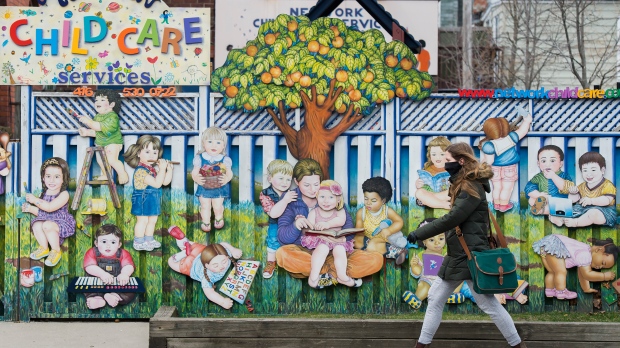OTTAWA —
In the nearly eight months since the federal government unveiled its ambitious child-care plan, nestled in their spring budget, seven provinces and one territory have signed onto the agreement.
Only Alberta, New Brunswick, Ontario, the Northwest Territories and Nunavut have yet to sign the dotted line that would see billions of dollars go towards establishing $10-per-day early learning and child care.
So what’s left in the negotiation process and when will the money actually flow?
ELECTION DELAYS
The delay to secure the remaining deals appears to be, at least in part, attributable to the fall federal election campaign. Now that Prime Minister Justin Trudeau has named his cabinet, those talks have resumed, provincial officials tell CTVNews.ca.
Alberta’s Minister of Children’s Services Rebecca Schulz says she’s been able to connect with her newly named federal counterpart, Minister of Families, Children and Social Development Karina Gould, since the cabinet announcement to express the need to speed up consultations.
“As I’ve said before, we agree that access to affordable, high-quality child care is important for Alberta families. We’re currently working with the federal government to create an Alberta-made plan that will drive economic recovery and support working parents,” read a statement issued to CTVNews.ca last Friday.
“Following the federal election, we presented the federal government with a plan that is supported by a number of non-profit and private operators as well as business leaders.”
New Brunswick’s Minister of Education and Early Childhood Development, Dominic Cardy, meanwhile says, “our goal remains to reach an agreement as soon as possible.”
“We are seeking a better understanding of how the federal funding may impact child care in the province and our efforts to support New Brunswick’s families, educators and operators.”
The proposal outlines an investment of $30 billion starting in 2021-2022 as part of an initial five-year agreement.
The aim is to reduce average fees for regulated care by 50 per cent in all provinces outside of Quebec by the end of 2022 and reach the $10 a day structure by 2025-2026.
The government will work with Quebec separately on a unique agreement to enhance their system.
According to 2020 data from the Canadian Centre for Policy Alternatives (CCPA), Toronto, ON reported the highest median toddler fees last year at $1,578 a month, followed by Richmond Hill, ON at $1,327 and Richmond, B.C. at $1,300.
Deputy Prime Minister Chrystia Freeland last week said she understands the urgency to get the plan into motion.
“A lot of families have said to me that early learning and child-care costs are like a second mortgage. We are really, really hard at work getting deals done with the provinces and territories with whom we have not yet concluded a deal,” she said during a press conference.
“It’s really important to me to get those done, get them done quickly because that is going to help families get through.”
The 2021 budget stipulates that Ottawa will authorize the transfer of the first batch of funding as soon as bilateral agreements are reached.
However, a spokesperson for the federal minister of families, children, and social development told CTVNews.ca the money will flow by the end of the year.
MORE SPACES NEEDED
But as some experts note, a reduction in fees is just part of the problem. Tackling space shortages is equally as pressing.
In a platform crunch by the CCPA, author David Macdonald notes that to avoid a sudden increase in long waitlists, more spaces must be built to accommodate increased demand.
“Those spaces need capital money to get going and Early Childhood Educators (ECEs) to staff them and a planned strategy to ensure that expansion occurs when and where it’s needed. Without additional ECE training and substantially higher wages to attract them to those jobs, staff won’t materialize from nothing. Training dollars, better working conditions and higher wage stipulations have to be part of any national plan,” reads the report.
Ontario Premier Doug Ford has highlighted some of these concerns in comments about his government’s reluctance to sign on to the plan as drafted.
As Canada’s most populous province, Ontario is looking for a more tailored approach to meet their needs while recognizing the province’s existing investments, such as full-day kindergarten.
“While we welcome increased support for child care, until this year, the federal government only contributed 2.5 per cent to Ontario’s program,” a statement from Ontario Education Minister Stephen Lecce’s office sent to CTVNews.ca on Monday read.
“Ontario needs long-term financial support that is flexible to respond to the unique needs of every parent, not a one-size-fits-all approach. Ontario will negotiate a good deal for Ontario parents – one that provides hard working families with safe, affordable, and flexible child care options.”
Despite the varying opinions and approaches to improving child care in Canada, provincial and federal governments agree post-pandemic economic recovery will hinge on an improved system to get parents back to work.




















Discussion about this post